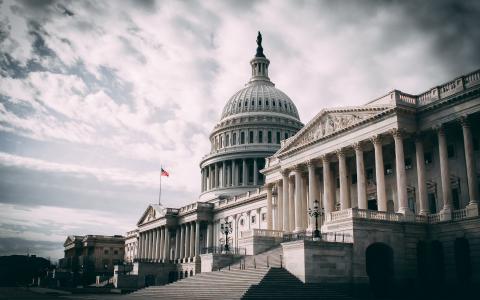
An article in the Financial Times July 9 related how some asset managers are upset about a proposed U.S. Department of Labor rule that would bar pension funds from making investments that prioritize politics over sound retirements. The rule says that investing decisions can’t be driven by environmental, social and governance or “ESG” considerations if financial returns are sacrificed.
The proposal sounds eminently sensible, but, as the FT’s Billy Nauman writes, it “has set off alarm bells across the asset management industry, where ESG-themed funds have been a big success, attracting tens of billions of dollars of investment in recent years.”
Somehow, the potential marketing troubles of asset managers don’t bother me. I’m aware that their fees have squeezed by the popularity of straight-up index funds and that ESG investments, with higher expenses, have been a godsend. As an example, BlackRock BLK, the world’s largest asset manager, charges 46 cents annually for every $100 invested in its iShares Global Clean Energy ETF, one of the largest ESG funds in the world, and just 4 cents for its iShares fund linked to the Standard & Poor’s 500 index.
The Labor Department has a different concern, one that I have too as the leader of an organization that seeks to protect pensions. Our concern is that the people who are investing on behalf of millions of current and future retirees aren’t living up to their fiduciary responsibility by choosing stocks and bonds on the basis of ideological or social preferences.
Here’s the way the Department put it on June 30:
“To the extent that ESG investing sacrifices return to achieve non-pecuniary goals, it reduces participant and beneficiaries’ retirement investment returns, thereby compromising a central purpose of ERISA [the pension law]. Given the increase in ESG investing, the Department is concerned that, without rulemaking, ESG investing will present a growing threat to ERISA fiduciary standards and, ultimately, to investment returns for plan participants and beneficiaries.”
Let’s be clear. ESG is an essential tool for managing companies large and small. Boards of directors and managers who ignore ESG considerations risk, among other things, losing the war for talent and causing environmental harm at potentially great expense to their communities and their own bottom lines. Good governance is indeed good business.
The problem is that ESG has been hijacked by political activists who want to use other people’s money to advance their own political agendas. The definition of ESG is vague, at best. But consider the popular S&P 500 ESG index, which excludes about 200 companies that don’t meet certain ill-defined standards. Among those not deemed worthy are Walmart, Kimberly-Clark, US Bancorp, Clorox, Twitter, ViacomCBS, Nordstrom, Southwest Airlines, Johnson & Johnson, 3M, DuPont, Netflix, IBM, PayPal, and Berkshire Hathaway. Also excluded are weapons and aerospace makers like Lockheed Martin and Honeywell International. (Imagine if in 1941 investment managers were saying, “We’re not going to invest in companies that make bullets for our soldiers or engines for our B-17s.”)
Oh, and Standard & Poor’s also put its archrival Moody’s MCO on the excluded list.
The catchphrase ESG has become merely an excuse for asset managers to apply their own prejudices (against defense contractors or energy producers, for example) to investment choices – and then disingenuously claim they are practicing some kind of sophisticated financial analysis. Individual investors are certainly entitled to pick stocks this way, but the Labor Department is right to enforce a different standard for fiduciaries who are responsible for secure retirements for millions of Americans.
It is time to reclaim ESG as a force for good, not an excuse to promote a political agenda. The Department of Labor is trying to accomplish that difficult task.
This article originally appeared on Forbes.



